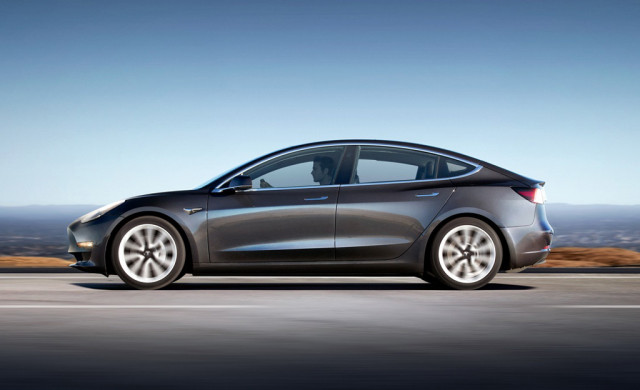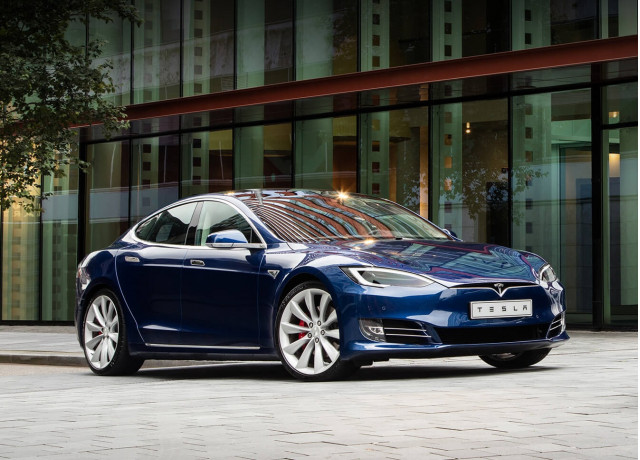Follow Bengt

2017 Tesla Model 3
Tesla and its CEO Elon Musk made a multi-layered end-of-year push, focused on Tesla's final days and weeks of $7,500 federal EV tax credit eligibility. And with more than 90,000 vehicle deliveries in the fourth quarter of the year—a new record for the California electric-car maker—it appears to have worked.
According to Tesla, it delivered 90,700 vehicles in Q4 2018—8 percent more than in Q3. That included 63,150 deliveries of its mass-market sedan, the Model 3.
DON'T MISS: What effect will lower tax credits on Tesla and GM plug-ins have in the new year?
Model 3 sales alone, for the full year, added up to more than 145,000 vehicles—not far from the 150,000 level, but falling short of some end-of-year estimates. In all, Tesla delivered 245,240 vehicles, which means the automaker is now in close company with any number of strong-selling established brands.

2018 Tesla Model S
The production rate for Q4 2018 included 86,555 vehicles, with 61,394 Model 3 sedans and 25,161 Model S and Model X vehicles. For the Model 3, that amounts to an average rate of 4,722 vehicles per week over the quarter—a fair amount below the 5,000/week rate that Tesla CEO Elon Musk said would be required to make the car profitable in 2018.
Tesla notes that it's reducing the number of models in transit through improvements to its logistics system. Deliveries exceeded production across both of Tesla's model lines, but the company didn't clarify whether that serves as evidence of the improvement.
CHECK OUT: Tesla offers to cover remainder of full tax credit if it can't deliver by year-end
It may prove easier to build stock this quarter because Tesla's eligibility window for the $7,500 federal EV tax credit has passed. Tesla is countering that, however, with a $2,000 U.S. price reduction for the Model 3, as well as the Model S and Model X. Since customers can still receive a federal tax credit of $3,750 on Tesla vehicles for the next six months, it helps soften what's effectively a price hike.
Tesla claims to have started 2018 with a delivery run rate of 120,000 vehicles and ended it at more than 350,000 vehicles per year. We've heard such claims before—like Musk's original target of 500,000 vehicles in 2020—so just as with the financials on the fourth quarter, we'll just have to wait for the numbers.